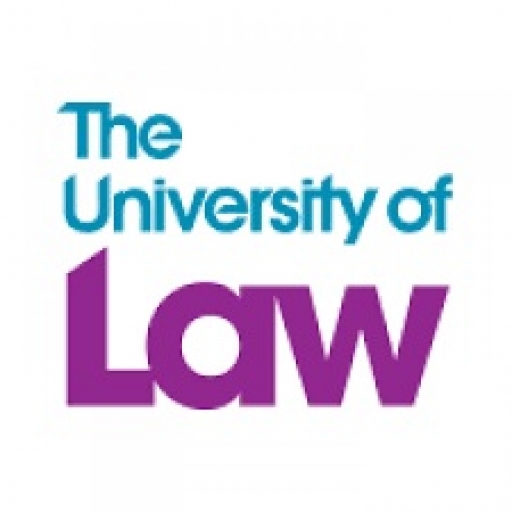Photos of university / #u_law
The Law programme at The University of Law Business School offers students a comprehensive and rigorous education in the foundational principles of law, preparing them for a wide range of legal careers or further academic study. Designed to develop critical thinking, analytical skills, and a strong understanding of legal systems, this programme equips students with the knowledge necessary to navigate complex legal issues across various contexts. Throughout the course, students will engage with core areas of law including contract law, criminal law, tort law, constitutional law, and administrative law, alongside opportunities to explore specialized fields such as environmental law, human rights law, and commercial law. The programme emphasizes practical skills development through various teaching methods including interactive lectures, seminars, case studies, and moot court exercises, which emulate real-life legal proceedings and enhance advocacy skills. Students will also benefit from opportunities for placements and internships with law firms, NGOs, and corporate legal departments, providing valuable insights into the legal profession and enhancing employability upon graduation. The curriculum is designed to foster not only legal expertise but also key skills in research, reasoning, communication, and ethical judgment, aligning with the demands of modern legal practice. The University of Law Business School’s modern facilities, experienced faculty, and strong industry links ensure that students receive a high-quality education grounded in current legal developments and professional standards. Whether aiming to qualify as a solicitor or barrister, pursue a career in legal consultancy, or continue onto postgraduate legal studies, graduates of this programme will be well-prepared for success in a competitive legal landscape. The programme also encourages critical engagement with legal reforms and societal issues, fostering responsible and informed legal practitioners committed to justice and professionalism.
- Pre-course study
Before you start your GDL you will need to complete our online pre-course study programme on legal method, designed specifically to prepare you for the GDL, so you're up to speed when you arrive.
Our online pre-course study programme in legal method is a compulsory and integral part of the GDL and must be completed before you start the course. It has been designed to allow you to work at your own pace and should take you approximately 50 hours to complete.
- GDL modules
The course is divided into nine modules, made up of seven foundations subjects, a module at the start of the course providing insight into the profession and a choice of module enabling you to study an area of law that you would like to specialise in.
- Ethics and Professional Legal Practice module
This unique module taken at the start of the course includes:
- Foundation subjects
You’ll then study the seven key areas of law:
Chose* between one of the following modules:
- Research Project module
In this module you will plan, research and write an essay, tailored to reflect the area of law in which you intend to specialise. You will have time dedicated in your timetable to undertake this work and detailed guidance on both legal research and legal essay writing skills.
- Law of Organisations module
This module is for students intending to practice as a solicitor in a corporate law practice and is offered as an alternative option to the Research Project module. In this module you will study the principles of contract and corporate law that underpin the creation and running of business organisations. The module will develop your legal research skills in this area resulting in the preparation of a legal report on an allocated problem based question. On the full-time course, this module will be taught through face-to-face workshops and on the part-time course this module will be studied online.
- Insight into the different areas of the legal profession
- Consideration of the role of legal ethics within the profession
- Development of key legal skills and professional attributes required by lawyers
- Public law
- European Union law
- Criminal law
- Tort
- Contract law
- Land law
- Equity and trusts
To be eligible to take up your place on our GDL, you must comply with the following requirements:
- If you have a legal qualification from outside England and Wales or have studied aspects of law as part of a non-qualifying degree course, you may be exempted from certain elements of the GDL. If this applies to you:
- Future barristers - please apply for a Certificate of Academic Standing from the Bar Standards Board (BSB)
- Future solicitors - please e-mail a copy of your degree transcript, certificate and syllabus information through to the Admissions team who can deem whether you are eligible for certain exemptions on the GDL
- If you are claiming full exemptions for the GDL you will need to apply for a Certificate of Exemption from the Bar Standards Board or Equivalent Means from the Solicitors Regulation Authority
- A sufficient command of English is required to successfully complete the course. Please note that students providing a degree from a UK university as proof of English must have studied the whole degree in the UK.
- Overseas graduates and mature non-graduates:
- Future barristers - please apply for a Certificate of Academic Standing from the Bar Standards Board (BSB)
- Future solicitors - please send your qualifications through to the Admissions team who can deem whether you are eligible for the course
- A UK undergraduate degree in any discipline (minimum 2:2), or an equivalent qualification.
International entry requirements: An English language level equivalent to IELTS 6.0 or above with a minimum of 5.5 in each component.
The University of Law Business School offers a range of financing options to support students pursuing their Law degree programmes. Tuition fees for Law programs vary depending on the specific course and study mode, but generally, domestic students can expect fees to be in the range of £9,250 per year for full-time undergraduate courses. International students usually pay higher fees, approximately £13,000 to £15,000 per year. The university provides a variety of scholarship opportunities aimed at both domestic and international students, which can significantly reduce the cost of study. These include merit-based scholarships, which are awarded based on academic achievement, as well as need-based bursaries for students demonstrating financial hardship.
Additionally, students can explore government funding options such as student loans, which are available through the UK Government’s Student Loans Company. These loans tend to cover tuition fees and provide maintenance support for living expenses, which students typically repay after graduation once their income exceeds a certain threshold. The university frequently advises prospective students to thoroughly research available financial aid and to apply early, as some funding opportunities are competitive and limited in number.
Private funding sources, including bank loans and educational grants from third-party organizations, can also be utilized by students. The university’s financial aid office offers guidance and support throughout the application process for these funding options, ensuring students are well-informed about their financial commitments and potential resources. Payment plans are typically available, allowing students to spread the cost of tuition over manageable installments rather than a lump sum, easing financial burdens during their academic journey.
Furthermore, part-time study options and flexible study arrangements may lower costs for students who balance work and study, allowing them to earn income while pursuing their degree. The university emphasizes the importance of financial planning and encourages students to contact its financial services team for personalized assistance. Overall, The University of Law Business School aims to make legal education accessible by providing comprehensive and flexible financing solutions tailored to diverse student needs, ensuring that financial considerations do not hinder aspiring legal professionals from obtaining a high-quality education.
The University of Law Business School offers a comprehensive Law degree programme designed to equip students with a thorough understanding of the legal system, critical thinking skills, and practical legal knowledge essential for a successful career in law. The programme covers a wide range of core legal topics such as Contract Law, Criminal Law, Public Law, Tort Law, and Equity and Trusts, providing students with a solid foundation in legal principles and their applications. Students also have the opportunity to specialise in areas of interest through optional modules, enabling them to tailor their learning experience to specific legal sectors like Business Law, International Law, or Human Rights Law. The curriculum is delivered through a combination of lectures, seminars, interactive workshops, and practical assessments, ensuring a dynamic and engaging learning environment.
The programme emphasizes the development of essential skills including legal research, analysis, and advocacy, preparing graduates to excel in various professional settings. The University of Law Business School prides itself on its strong links with the legal profession, offering opportunities for work placements, internships, and networking events that allow students to gain real-world experience and build professional connections. Additionally, students are supported by dedicated academic tutors, career advisors, and access to extensive legal resources and online libraries.
Many Law programmes at the University of Law are designed to meet the requirements for qualifying as a solicitor or barrister in the UK, including preparation for professional training and vocational courses such as the Legal Practice Course (LPC) and Bar training. Graduates from this programme are well-prepared to pursue further professional studies, enter legal practice, or move into related fields such as business, consultancy, or public service. The university’s focus on combining academic excellence with practical skills ensures that students are market-ready upon graduation, capable of addressing complex legal issues with confidence and competence.
Overall, the Law programme at the University of Law Business School offers a rigorous, immersive, and career-focused legal education, supported by experienced faculty members and extensive industry contacts. Students leave with not only a strong academic foundation but also the practical skills, networks, and confidence required to thrive in the legal profession or related careers.






